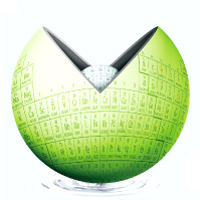
Published for geochemistry community from Geochemical Society of Japan.
Testing possible relationships between Acropora digitifera genes, seawater chemistry and skeletal elements
Geochemical Journal, Vol. 52, No. 3, P. 263-272, 2018
ABSTRACT
Coral skeletons are robust tools for examining past environments. However, biogenic effects during skeletal formation cause uncertainties in paleoclimate reconstructions. Thus establishing a method to separate biogenic effects from abiogenic ones during skeletal formation is required. Here we utilized an open access and searchable gene database for the staghorn coral Acropora digitifera and examined the number of genes related to the elements in seawater to assess the origin of uncertainties in geochemical proxies. We found that A. digitifera has genes that can process at least 15 chemical elements as individual substances (Ca, Na, Zn, K, C, N, Cl, S, Fe, Mg, Mn, Cu, H, Mo, and Te) and transporters for seven of these elements (Ca, Na, Zn, K, Cl, Cu, and H). The number of Ca-related genes was the highest (at least 428 genes, including 53 transporters), whereas Sr, one of the most widely used geochemical proxies, was not found in the gene database. Furthermore, we analyzed skeletal samples of A. digitifera exhibiting different growth rates; their Sr/Ca ratios showed the lowest variation (1.9%), whereas other proxies (K/Ca, Na/Ca, and Mg/Ca) showed higher variation (2.3–11.9%). This might be linked to the number of genes related to the proxies (namely, the magnitude of biogenic and/or abiogenic effects). We suggest that considering elements with no relevant coral genes could provide effective criteria for reliable proxies (e.g., Sr/Ca, Li/Ca and U/Ca).KEYWORDS
seawater element, geochemical proxies, genomic information, scleractinian coral, Acropora digitiferaSupplementary Materials(file)
https://www.jstage.jst.go.jp/article/geochemj/52/3/52_2.0511/_supplement/_download/52_2.0511_1.pdf
- Published : 2018-05-30
- Released on J-STAGE : 2018/05/31
- Received : 2016/12/09
- Accepted : 2017/12/01
- DOI : https://doi.org/10.2343/geochemj.2.0511
- J-STAGE URL : https://www.jstage.jst.go.jp/article/geochemj/52/3/52_2.0511/_article/-char/ja
- J-Online ISSN: 1880-5973
- Print ISSN : 0016-7002
- ISSN-L : 0016-7002
All Issues
- Vol.59, 2025
- Vol.58, 2024
- Vol.57, 2023
- Vol.56, 2022
- Vol.55, 2021
- Vol.54, 2020
- Vol.53, 2019
- Vol.52, 2018
- Vol.51, 2017
- Vol.50, 2016
- Vol.49, 2015
- Vol.48, 2014
- Vol.47, 2013
- Vol.46, 2012
- Vol.45, 2011
- Vol.44, 2010
- Vol.43, 2009
- Vol.42, 2008
- Vol.41, 2007
- Vol.40, 2006
- Vol.39, 2005
- Vol.38, 2004
- Vol.37, 2003
- Vol.36, 2002
- Vol.35, 2001
- Vol.34, 2000
- Vol.33, 1999
- Vol.32, 1998
- Vol.31, 1997
- Vol.30, 1996
- Vol.29, 1995
- Vol.28, 1994
- Vol.27, 1993
- Vol.26, 1992
- Vol.25, 1991
- Vol.24, 1990
- Vol.23, 1989
- Vol.22, 1988
- Vol.21, 1987
- Vol.20, 1986
- Vol.19, 1985-1986
- Vol.18, 1984
- Vol.17, 1983
- Vol.16, 1982
- Vol.15, 1981
- Vol.14, 1980
- Vol.13, 1979
- Vol.12, 1978
- Vol.11, 1977
- Vol.10, 1976
- Vol.9, 1975
- Vol.8, 1974
- Vol.7, 1973
- Vol.6, 1972-1973
- Vol.5, 1971
- Vol.4, 1970-1971
- Vol.3, 1969-1970
- Vol.2, 1968
- Vol.1, 1966-1967
Current Issue:
Stats:
Impact Factor: 1.6 (2024)
Submission to final decision: 9.6 weeks (2022)




